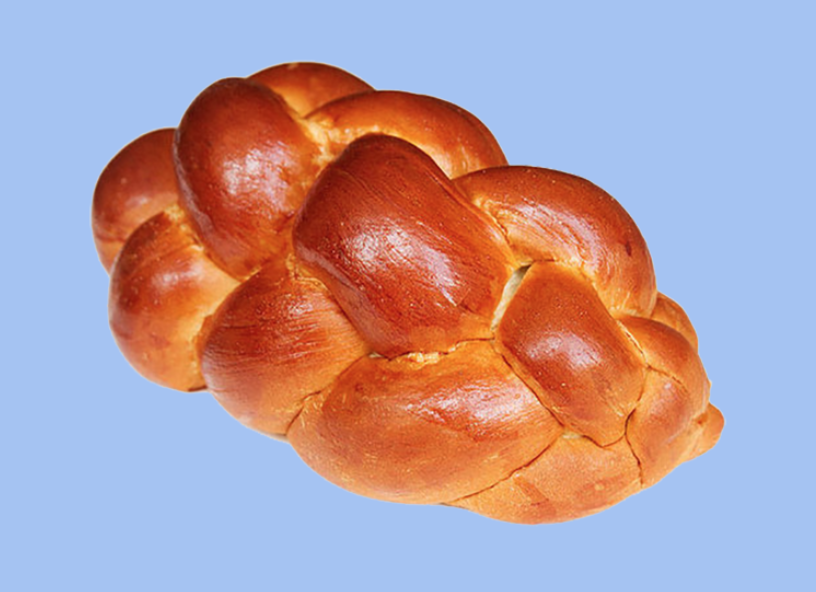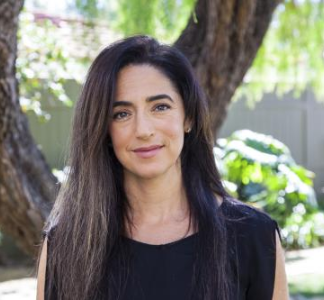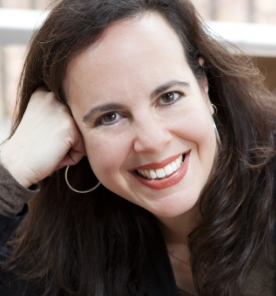People find lots of different ways to cope with the stress of everyday life. One day Beth Ricanati, an internist at the Cleveland Clinic and the mother of three young children, was particularly overwhelmed. A friend of hers suggested that she make challah for the Jewish New Year, Rosh Hashana.
Challah is a traditional braided bread eaten on Shabbat, the Jewish sabbath as well as major Jewish holidays. It is customary to bake a round challah on Rosh Hashanah to symbolizes the year coming to a close and a new one beginning.

Ricanati decided to take her friend’s advice. That Friday, before the sun went down signifying the start of Shabbat, she carved out thirty minutes to bake a loaf of Challah.
Ricanati explained, “It was the most transformative experience because I just stopped.”
The talk was sponsored by Duke’s Forum for Scholars & Publics, a weekly forum where local, national, and global scholars can interact with the Duke community to generate greater exchange between the university and the broader world. It was facilitated by Duke Professor Kelly Alexander who brought the students in her first-year seminar “How ideas about food circulate across cultures and across film.”


Baking challah is a cultural and ritualistic practice. Ricanati explained that the first step of the recipe is to stop and think. When baking challah, it’s important to have an intention, to consider “why am I here and in whose merit am I making this bread?” This intention can be for others or for yourself. After the bread has risen the baker blesses it and takes a small piece off which represents the offerings that used to be made at the temple in Jerusalem.
Ricanati is a women’s health expert and medical professional. She had never really baked before this. “Challah is not necessarily about the end product, about making a perfect challah. It is about the process.”
There are 613 mitzvot or commandments in the Jewish tradition and only three of them are specifically designated for women. Baking Challah is one of them. Challah is special because it is intended to nourish us both physically and spiritually.
Ricanati added, “When I took the challah out of the oven that day my house became a home.”
She enjoyed this experience so much that she decided to continue baking challah every Friday. Not only did it create thirty minutes a week for her to stop and reflect but it brought wellness into her life. As a result, she ended up writing a book titled Braided: a journey of 1000 challahs. The book focused on thinking about food as medicine and how to create wellness in one’s life.

“To be well is more than just physical,” Ricanati said. Wellness is about both the mind and the body; it’s about a holistic treatment of the whole person. “Making challah, for me, is a way to embrace stress management.”
As a medical professional, Ricanati also explained the idea of Neuroplasticity, the ability of the brain to change continuously throughout one’s life. Our behaviors aren’t fixed and new behaviors have to be enjoyable in order to be sustainable.
“The more I made the bread, the easier it became and the easier it became the more I made the bread,” she said.
After publishing her book, Ricanati got to meet others who had been inspired to start the ritual of baking challah in there own homes. Similarly, they too felt that the ritual brought unexpected wellness into their lives. Beyond this, Challah has the ability to strengthen a community — not only does baking lend itself to being a group event but there are people baking challah on Fridays all over the world.
“It is a gift to bake Challah because it feeds both your soul and your tummy.”

Post by Anna Gotskind
